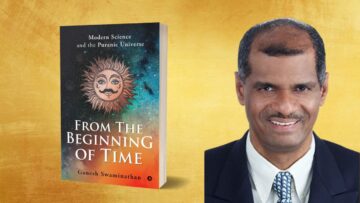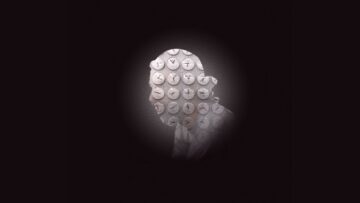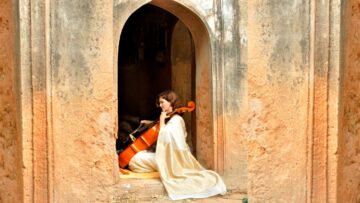We are pleased to announce Sri Hari Kiran and Sri D.V.Sridharan will join the board of Trustees of International Forum for India’s Heritage(IFIH). A brainchild of Sri Michel Danino , IFIH was established in 2001 with the blessings of Pujya Swami Dayananda Saraswati with the following charter.
Charter of the International Forum for India’s Heritage (IFIH)
- It is the birthright of every Indian man, woman and child to have full access to and imbibe India’s cultural heritage in complete freedom.
- Making humankind truly human is the foremost function of any genuine culture, and this has been a central preoccupation of India’s heritage. The roots of Indian civilization include certain timeless and universal values without which a human being is incomplete or limited. Among those values are :
-
- Universality and Oneness : “The whole world is one family” (vasudhaiva kutumbakam) sums up the Indian spirit according to which “humanity is one” (ekaiva manushi jatih) without divisions of colour, religion, belief, sex or social origin. The whole creation is seen as profoundly interconnected.
- Man’s Divine Potential : Because the whole creation is seen as divine, because the Infinite is present in the finite, every human being has in him or her a divine potentiality, and the purpose of human life is to work out that potentiality to its fullest.
- Pluralism and Synthesis : There is no single approach to the Truth, no single path to human fulfilment. Any sincere approach is valid so long as it leads to a growth of consciousness, does not seek to impose itself on anyone by any means, and does not claim to be the sole path to the Truth. Starting from the Vedic vision that “The Existent is one, but sages call it by various names,” the ancient heritage of India has promoted assimilation and ever-wider synthesis.
- The above values are part of what India has called dharma, a term which cannot be reduced to a few tenets or dogmas, and cannot be the exclusive property of any clergy or sect. Dharma therefore cannot be regarded as religion, but is a law of growth and evolution of our inner being and power until they rule the whole of life.
- Since Independence, the Western notion of “secularism” has been promoted in Indian life and in education in particular. But instead of developing a vast comprehensiveness in conformity with India’s spiritual genius, the term has come to promote materialism, cultural nihilism, protection of exclusivism, and consequently marginalization and alienation of Indian heritage. Secularism in the West was born as a reaction against dogmatic religions and their hold on political power ; though a great step forward in Western history, it has no relevance in the Indian context, where the native concept, largely practised in ancient India, is freedom of belief and religion and equal treatment by the State of different sects or religions. However, the State also has a duty to ensure that any religion practised in India respects the country’s pluralistic ethos.
- The great need of reform and progress of Indian society is acknowledged, but no solution will be durable if it is not in sympathy with the foundations of Indian culture. In the words of Sri Aurobindo : “The spirit and ideals of India had come to be confined in a mould which, however beautiful, was too narrow and slender to bear the mighty burden of our future…. Break the mould that the soul may live.” To keep the soul of India alive is the key to all long-lasting reform.
- India’s centuries-old influence over other civilizations and cultures — including modern, materialistic Western civilization — has been considerable. It is but natural that an Indian child should know something of the heritage native to his or her land, especially as countless great Indians have declared it to be at the core of India’s genius. No one, therefore, has a right to deny Indian children a basic knowledge of it. As many great Indians such as Swami Vivekananda, Sri Aurobindo, Rabindranath Tagore, Mahatma Gandhi and others have stressed (some of their thoughts are quoted in Appendix), education in India must seek to include timeless values such as those outlined above, which have to do not with religion, but with culture in the true sense of the term, and belong more to the future than to the past. No excuse of misconceived “secularism” can be allowed to deprive Indian children of access to such values, which have lost none of their power to fashion a better human being and build national character. Excellence in education must go hand in hand with a well-designed teaching of the living elements of Indian culture, which whenever possible should be integrated in the regular subjects rather than taught separately.
- Central to Indian heritage is the spirit of inquiry, which the present system of education has failed to stimulate in Indian children. One effective remedy is to introduce in education some roots of Indian heritage born on the subcontinent, such as :
-
- science of Yoga (theory and practice, experimentation and verification) ;
- stories and ethical teachings from ancient Indian texts such as the Vedas, Upanishads, Ramayana and Mahabharata, from Buddhism, Jainism, Sikhism, and from Indian tribal traditions ;
- emphasis on works like the Bhagavad Gita for their great ethical value ;
- Indian classics from Kalidasa and other authors ;
- Tamil epics (especially the Shilappadikaram), classics like the Kural, and some Sangam poetry ; elements from early regional literatures ;
- collections of stories of educational value (such as the Panchatantra), including folk stories from various regions of India ;
- introduction to the world-view and chief discoveries of ancient Indian science (mathematics, astronomy, etc.), technology and medicine ;
- Indian art (dance, music, painting, architecture, folk art etc.) with emphasis on the practical aspects of Indian aesthetics.
- As early as 1956, the Sanskrit Commission, calling Sanskrit “the bedrock of Indian speech and literature and the artistic and cultural heritage of the country,” complained that “no positive steps had been taken for helping Sanskrit [… and] Sanskrit has not been allowed to enjoy even the status and facilities it had under the British Raj.” So too the Supreme Court in a 1994 judgement rightly stressed the “importance of Sanskrit for nurturing our cultural heritage.” Yet little has been done to give Sanskrit its due place in education and in national life. Its spread must be encouraged, at least in a simplified form, not only as part of regular studies but through numerous cultural events. Classical Tamil too deserves more encouragement than it has received.
- Archaeology and preservation of monuments, including temples and pilgrimage sites, of traditional crafts and techniques, have also not received adequate attention and development in post-Independence India. A better understanding of India’s past is needed to build her future on a sound foundation, and central elements of her past civilization must be studied and preserved as part of India’s and the world’s heritage. Visits to such heritage sites should be part of regular studies from school level upward.
- India’s natural environment has suffered much in recent decades and its degradation is approaching a point of irreversibility. Although many are trying to limit or reverse the damage, a harmonious material growth will prove sustainable only if it integrates India’s ancient attitude to Nature, viewing it not as a dead mass of “natural resources” to be plundered, but an aspect of our common Mother whose gifts are to be shared. India’s traditional knowledge systems as regards conservation and use of biodiversity, health and medicine, and a humane treatment of animals, also require urgent attention so their neglected potential may be tapped.
- Indian heritage, with its emphasis on universality, is part of world heritage and must be preserved not only for India but for all humanity. In particular, people of Indian origin living abroad should be encouraged to nurture it and transmit it to their children.
- This International Forum for India’s Heritage shall remain strictly apolitical, non-religious, and free from all ideological allegiance. It is open to all individuals or organizations, in India or abroad, that adhere to the above eleven points, understand their importance, and will support efforts to have them spread, accepted and implemented. The Forum shall function by consensus on the basis of the Charter; in case of disagreement as to the practical methods to follow, the final decision will be left to the consensus of the core group of founder members.
The list of IFIH’s founder members is given below :
- Shri Baleshwar Agrawal, journalist, general secretary, Antar Rashtriya Sahayog Parishad(New Delhi)
- Prof. T. R. Anantharaman, former director of Institute of Technology and rector, Banaras Hindu University (Varanasi), chairman, Ashram Atmadeep (Gurgaon)
- Prof. Shalini Awasthi, lecturer, Delhi Institute of Heritage Research and Management(New Delhi)
- Shri Rajendra Awasthy, editor, Kadambini (New Delhi), secretary general, Organisation of Indian Writers
- Shri A. V. Balasubramanian, Centre for Indian Knowledge Systems (Chennai)
- Dr. Rahul Banerjee, Saha Institute of Nuclear Physics (Kolkata)
- Dr. Kiran Bedi, joint commissioner of police training, Police Training College (New Delhi)
- Prof. Susheela Bhan, director, Institute of Peace Research and Action (New Delhi)
- Shri R. S. Bharadwaj, founder member, governing body, National Value Education Centre, chief national adviser, Bharatiya Shikshan Mandal (New Delhi)
- Shri Kamleshwar Dayal Bhargava, managing trustee, The Centenarian Trust (Chennai)
- Prof. (Dr.) S. C. Bhattacharya, national fellow, Indian Institute of Advanced Study(Shimla)
- Shri K.P.C. Anujan Bhattathiripad, Vedic scholar
- Shri Emilios Bouratinos, thinker and writer (Greece)
- Prof. Shitangsu K. Chakraborty, Management Centre for Human Values, Indian Institute of Management – Calcutta (Kolkata)
- Dr. Lokesh Chandra, scholar and Indologist, former member of Rajya Sabha
- Shri Sansar Chandra, trustee, Sanskritik Gaurav Sansthan (New Delhi)
- Prof. Ranjit Roy Chaudhury, emeritus scientist, National Institute of Immunology(Delhi), and president, Delhi Medical Council, and Unesco professor, Bangkok
- Dr. P. N. Chopra, chairman, National Institute of Historical Research, president, Society of Commonwealth Historians, chief editor, Collected Works of Sardar Patel and Towards Freedom
- Dr. T. H. Chowdary, founder of VSNL & I.T. adviser to the A.P. government, and founder of Pragna Bharati (Hyderabad)
- Shri Michel Danino, author and trustee, The Mother’s Institute of Research (New Delhi & Nilgiris)
- Prof. Ruddar Datt, former president, Indian Economic Association & Society of Labour Economics, visiting professor, Institute for Human Development (New Delhi)
- Smt. P. Datta, principal, Kulachi Hansraj Model School (Delhi)
- Dr. Prafull Dave, Gujarat Biradari (Jamnagar), editor, Biradar Patrika.
- Justice Shiv Dayal, former chief justice of Madhya Pradesh High Court, Vidhi Vachaspati, and founder, Devi Sarojini Punyarth Kosh Society (New Delhi)
- Swami Dayananda Saraswati, founder of Arsha Vidya Gurukulam (Anaikatti) and president, Dharma Rakshana Sammelan
- Prof. Jayeshbhai Desai, former vice-chancellor, Saurashtra University, former director of Information, Gujarat State
- Prof. Som Datt Dikshit, writer and educationist, former secretary, Central Sanskrit Board, secretary general, World Association For Value Education (New Delhi)
- Prof. Romesh Diwan, professor of economics, Rensselaer Polytechnic Institute (Troy, USA)
- Prof. B. B. Dutta, former M.P. of Rajya Sabha, chairman, Sri Aurobindo Institute of Indian Culture (Shillong)
- Dr. David Frawley, director, American Institute of Vedic Studies (Santa Fe, USA)
- Shri David Freedholm, instructor in World Religions and Philosophy, Princeton Day School (Princeton, USA)
- Dr. D. Raja Ganesan, professor and head, dept. of Education, University of Madras(Chennai)
- Dr. Savita Gaur, reader, University Post Graduate Departments, South Gujarat University(Surat, Gujarat)
- Smt. Sagarika Ghose, writer and journalist
- Dr. N. Gopalakrishnan, honorary director, Indian Institute of Scientific Heritage(Thiruvananthapuram, Kerala)
- Prof. Amit Goswami, professor of physics, University of Oregon (USA), scholar, Institute of Noetic Sciences
- Air Vice Marshal (Retd.) S. N. Goyal, founder president, World Association for Value Education (New Delhi), co-ordinator, NGOs’ Consortium and chief editor, People’s Manifesto
- Smt. Dorothy Randall Gray, former literary consultant, U.N.O., writer and speaker (Los Angeles)
- Prof. Bharat Gupt, associate professor of English, University of Delhi, theatre theorist and cultural analyst
- Dr. Baijnath Gupta, director, Netaji Subash Institute of Technology (New Delhi)
- Dr. S. C. Gupta, former professor of mathematics, University of Roorkee (U.P.)
- Dr. S. P. Gupta, former director, Allahabad Museum, chairman, Indian Archaeological Society (New Delhi)
- Shri S. Gurumurthy, columnist and economist
- Dr. Rattanlal Hangloo, professor of history, University of Hyderabad
- Dr. A. Ramaswamy Iyengar, director, Chinmaya International Foundation (Veliyanad, Kerala)
- Dr. Dilavarsinh Jadeja, former vice-chancellor, Sardar Patel University (Vallabh Vidyanagar)
- Prof. Ashok K. Jain, professor of physics, University of Roorkee (U.P.)
- Dr. A. P. Jain, former deputy director, atomic scientist, National Physical Laboratory(New Delhi)
- Shri M. P. Jain, member, Ahimsa International (New Delhi), Jain Sabha and Indian Council of World Affairs, former honorary director, Kendriya Jeevan Vigyan Academy
- Shri S. L. Jain, principal, Mahavir Senior Model School (New Delhi)
- Smt. Anjali Jaipuria, vice-president, Integral Education Society (New Delhi), director, Seth Anandram Jaipuria Public School (Lucknow) and Jaipuria Management Institute(Lucknow)
- Prof. H. S. Jamadagni, Indian Institute of Science (Bangalore)
- Dr. Bharat Jhunjhunwala, former professor at IIM Bangalore, freelance economist, author and columnist
- Dr. Shrikant Jichkar, former MP, MLA, minister, ex-IPS & IAS, president, Arsha Vijnana Gurukulam (Nagpur)
- Swami Jitatmananda, author and president, Shri Ramakrishna Ashrama (Rajkot)
- Dr. Kireet Joshi, chairman of Indian Council for Philosophical Research (New Delhi), and former special secretary in the ministry of Human Resource Development
- Prof. Subhash Kak, indologist, historian of science and professor, Louisiana State University (USA)
- Dr. S. Kalyanaraman, director, Sarasvati Sindhu Research Centre (Chennai)
- Shri M. V. Kamath, member, Indira Gandhi National Centre for the Arts (New Delhi), journalist and former editor of The Illustrated Weekly
- Dr. Suryanath Kamath, historian and president, The Mythic Society (Bangalore)
- Prof. Kapil Kapoor, rector, Jawaharlal Nehru University (New Delhi)
- Shri J. C. Kapur, solar scientist, former president of Solar Energy Society of India, author and editor-in-chief, World Affairs (quarterly journal)
- Dr. Promilla Kapur, director, Integrated Human Development Services Foundation (New Delhi)
- Brigadier Teg Bahadur Kapur, co-director, Integrated Human Development Services Foundation (New Delhi)
- Prof. Shreepad Karmalkar, dept. of Electrical Engineering, Indian Institute of Technology-Madras (Chennai)
- Shri D. R. Karthikeyan, former director, Central Bureau of Investigation, and former director general, National Human Rights Commission
- Dr. Subhash Kashyap, former secretary of the Lok Sabha
- Prof. H. C. Khare, former professor of mathematics and dean, University of Allahabad, emeritus fellow, University Grants Commission
- Smt. Madhu Kishwar, editor, Manushi (New Delhi)
- Prof. Klaus K. Klostermaier, professor of religious studies, University of Manitoba(Canada)
- Shri P. R. Krishnakumar, managing director of Arya Vaidya Pharmacy (Coimbatore)
- Dr. Shashi Prabha Kumar, Dept. of Philosophy, University of Delhi
- Prof. B. Hrdaya Kumari, former professor and head of the dept. of English, University College, Thiruvananthapuram
- Dr. M. Lakshmi Kumari, Vivekananda Kendra Vedic Vision Foundation (Kodungallur, Kerala)
- Dr. S. Lakshmi, former vice-chancellor, Mother Teresa Women’s University
- Prof. B. B. Lal, former director general of the Archaeological Survey of India
- Prof. Makkhan Lal, former professor of ancient history and archaeology at Banaras Hindu University, Cambridge University and Aligarh Muslim University, director,Delhi Institute of Heritage Research and Management (New Delhi)
- Shri Rajiv Malhotra, founder, Infinity Foundation (Princeton, USA)
- Smt. Renu Sophat Malhotra, environmentalist and educationist, founder, Seed the World(Grand Rapids, USA, & Patiala, India)
- Shri Pravir Malik, founder, Aurosoorya (Pondicherry & San Francisco), member, The Concours Group (Boston), advisory board, International Journal of Humanities and Peace
- Dr. P. Ram Manohar, Aroor Ravi Memorial Ayurvedic Research Centre (Koppa, Karnataka)
- Dr. V. N. Misra, former director, Deccan College Post-Graduate Research Institute(Pune), national fellow, Indian Council of Historical Research (New Delhi), general secretary, Indian Society for Prehistoric and Quarternary Studies
- Dr. Vidya Nivas Misra, scholar
- Shri S. Ram Mohan, financial adviser, Indian Railways, scholar, editor, Ramanodhayam (Chennai)
- Shri P.G.S. Mony, director, Indo-French Centre for the Promotion of Advanced Research (New Delhi)
- Shri Frank Morales, Ph.D. candidate, dept. of Languages and Cultures of Asia, University of Wisconsin-Madison (USA)
- Shri K. Sivananda Murty, Anandavan (Bheemunipatnam, A. P.)
- Dr. R. Nagaswamy, former director of Archaeology, Tamil Nadu, and former vice-chancellor, Kanchipuram University (Deemed)
- Shri K. Balakrishnan Nair, film and television director
- Shri C. V. Devan Nair, former president of Singapore
- Dr. Sathis Chandran Nair, researcher, Intach (Natural heritage), Southern Regional Office for Environmental Education & Research, Thiruvananthapuram
- Prof. Vishnu Narayan Namboodiri, poet, writer, former professor and head of the dept. of English, University College, Thiruvananthapuram
- Shri Vineet Narain, editor, Kalchakra Investigative News Bureau
- Shri R. S. Narayanaswami, former assistant editor, The Indian Express
- Kum. B. Nivedita, Vivekananda Kendra (Kanyakumari)
- Prof. Chandrakala Padia, professor of political science, Banaras Hindu University(Varanasi)
- Dr. V. R. Panchamukhi, chancellor, Rashtriya Sanskrit Vidyapeetha (Tirupati), and director general, Research and Information System for the Non-Aligned and Other Developing Nations (New Delhi)
- Prof. Prema Pandurang, president of Kshetropasana (Chennai)
- Shri P. Parameswaran, director, Bharatheeya Vichara Kendram (Thiruvananthapuram) and president, Forum for Indian Value Education
- Prof. Makarand Paranjape, professor of English, Jawaharlal Nehru University (New Delhi) and visiting professor, dept. of English, Ball State University (Muncie, USA)
- Prof. Stephen Phillips, professor of philosophy and Asian studies, University of Texas(Austin, USA)
- Dr. V. N. Rajasekharan Pillai, former vice-chancellor, Mahatma Gandhi University(Kottayam, Kerala)
- Swamini Pramananda, coordinator, Vedic Heritage Teaching Programme (Anaikatti)
- Prof. K. V. Ramakrishnan, former professor of English, Sree Krishna College(Guruvayur), former editor, Mathrubhoomi weekly
- Pandita Indrani Rampersad, professor of developmental English, Borough of Manhattan Community College (New York), freelance journalist
- Dr. Diljit Rana, U.K. businessman and philanthropist, founder and president, Shradhanjali Trust (New Delhi)
- Dr. G. R. S. Rao, director, Centre for Public Policy and Social Development(Hyderabad)
- Prof. Lakshmana Rao, dept. of applied mechanics, Indian Institute of Technology-Madras (Chennai)
- Prof. Ramesh Rao, professor of communication, Truman State University (Kirksville, USA)
- Dr. K. L. Seshagiri Rao, professor emeritus, University of Virginia (USA), chief editor, Encyclopedia of Hinduism
- Vaidya P. M. S. Raveendranath, Ayurvedic physician and researcher, Poonthottam, Ayurvedasram (Kulakkad, Kerala)
- Dr. Yvette C. Rosser, Department of Curriculum and Instruction, University of Texas(Austin, USA)
- Dr. Victoria Rue, dept. of Religious Studies, St. Lawrence University (Canton, New York)
- Shri Vinay Sahasrabuddhe, director general, Rambhau Mhalgi Prabodhini (Mumbai) and freelance journalist
- Maj. Gen. Vinod Saighal, author, executive director, Eco Monitors Society, and convenor, Movement for the Restoration of Good Government (New Delhi)
- Shri Girish Sanghi, chairman and managing director, Vaarta and A.G.A. Publications (Hyderabad)
- Prof. M. M. Sankhdher, former head of the dept. of Political Science, Delhi University
- Smt. S. Santhi, researcher, Intach (Natural heritage), Southern Regional Office for Environmental Education & Research, Thiruvananthapuram
- Shri Abhay Sapru, consultant and writer
- Prof. (Dr.) K. V. Sarma, director, Sree Sarada Education Society Research Centre(Chennai)
- Dr. Baldev R. Sharma, former professor, Indian Institute of Management-Ahmedabad, fellow, Ford Foundation, and senior fellow, ICSSR
- Prof. BhuDev Sharma, professor of mathematics, Xavier University (New Orleans, USA) and president, World Association for Vedic Studies
- Pandit Shivkumar Sharma, santoor musician
- Dr. N. R. Sheth, social scientist, former director of Indian Institute of Management-Ahmedabad
- Shri Bhanu Pratap Shukla, writer and journalist
- Swami Shyam, founder, Shaanti-Sneh Movement and International Meditation Institute (Kullu, H.P.)
- Dr. B. G. Sidharth, astronomer & director, B. M. Birla Science Centre (Hyderabad)
- Prof. Bal Ram Singh, professor of chemistry, University of Massachusetts (USA), and director, Center for Indic Studies
- Shri B. P. Singhal, former director general of police, former additional secretary, Ministry of Home Affairs, vice-president, Sanskritik Gaurav Sansthan (New Delhi) and national president, All-India Crime Prevention Society
- Shri A. K. Sinha, superintending archaeologist, Archaeological Survey of India
- Dr. Stuart Sovatsky, president, Association for Transpersonal Psychology (San Francisco), and professor, California Institute of Integral Studies (San Francisco)
- Dr. Devakinandan Srivastava, former professor & head of Hindi dept., Visva Bharati, Santiniketan (West Bengal)
- Dr. K. Subrahmanyam, former principal, Vivekananda College (Tiruvedakam, T. N.)
- Dr. Padma Subrahmanyam, Bharata Natyam dancer and director, Nrithyodaya(Chennai)
- Dr. H. Sudarshan, Vivekananda Girijana Kalyana Kendra (B. R. Hills, Karnataka)
- Smt. Romila Suri, former principal, educationist, project head of school curriculum, Times Research Foundation (New Delhi)
- Prof. S. Swaminathan, former professor, Indian Institute of Technology-Delhi
- Shri T. P. Tewary, former chief secretary of U.P. and Lt. Governor of Pondicherry
- Dr. Shashi Tiwari, associate professor of Sanskrit, University of Delhi
- Prof. (Dr.) Daya Nath Tripathi, former professor and head, dept. of Ancient History, Culture and Archaeology, Gorakhpur University, fellow, Indian Institute of Advanced Studies (Shimla)
- Shri R. C. Tripathi, secretary-general of Rajya Sabha
- Dr. P. M. Unnikrishnan, Foundation for Revitalization of Local Health Traditions(Bangalore)
- Dr. M. S. Valiathan, founder, Shree Chitra Tirunal Institute of Medical Sciences(Thiruvananthapuram) and honorary advisor, Manipal Academy of Higher Education(Manipal)
- Prof. K. I. Vasu, national coordinator of the Swadeshi Science Movement, former professor of metallurgy and pro-vice-chancellor, University of Cochin
- Dr. K. Venkatasubramanian, member of the Planning Commission & former vice-chancellor, Pondicherry University
- Swamini Vimalananda, Chinmaya Vision Programme
- Prof. B. Viswanathan, dept. of Chemistry and former dean (student affairs), Indian Institute of Technology-Madras (Chennai)
- Prof. S. Yashonath, professor of chemistry, Indian Institute of Science (Bangalore)
Commenting on the development Hari Kiran said:
‘We are pleased to take over the baton of managing and building IFIH. Conceptualised by Michel Danino, founded by 148 eminent personalities and blessed by Pujya Swamiji, IFIH is a collective effort that is truly one of its kind. The intent behind the coming together of all the venerable intellectuals was to build an enduring institution that will preserve, protect and promote our civilisational heritage. By bringing together IFIH and Indic Academy we intend to fulfil this vision. All the activities and assets of Indic Academy will be merged under IFIH.
We will soon be reaching to all the founders of IFIH, outline our current activities and take their inputs for building a strategy for the future of IFIH.
A brief conversation between Michel Danino and Hari Kiran about the history of IFIH can be seen in this video.






